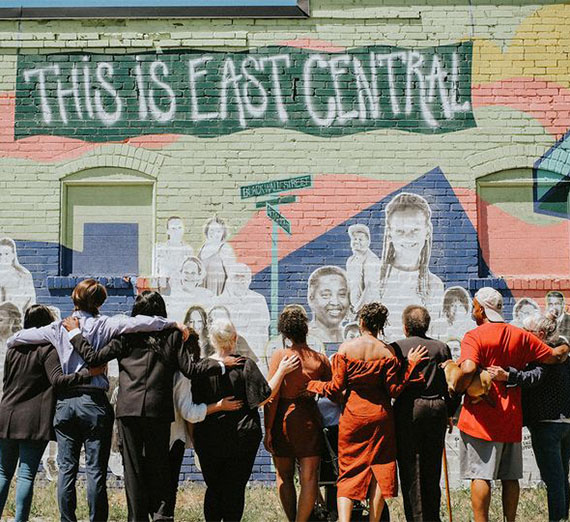New Grants Expand Gonzaga’s Climate Efforts Through Regional Partnerships

The Gonzaga Institute for Climate, Water, and the Environment has received two grants that will support its work helping inland Northwest communities navigate the effects of climate change through strategic regional partnerships and outreach.
Both grants fall within the Climate Institute’s Climate Resilience Project, which aims to build resilience to climate events in the Inland Northwest, primarily in response to extreme heat and wildfire smoke.
“The Institute cares deeply about environmental justice. These regional partnerships allow us to support those who are least responsible yet most impacted,” said Dante Jester, climate resilience program manager. “Through our grant work, we emphasize user feedback and engagement to tailor our approach to each community’s unique needs.”
Climate and Health Adaptation Initiative Grant
The Washington Department of Health’s Climate and Health Adaptation Initiative (CHAI) has awarded a one-year, $95,000 grant to the Gonzaga Climate Institute and the Carl Maxey Center to establish the center as a community resilience hub serving the East Central neighborhood.
The Carl Maxey Center is a Black-led and Black-centered nonprofit located in East Central Spokane and serves as a neighborhood cultural center and gathering place. It provides programs and services addressing the needs of Spokane’s Black community.
This partnership between the Climate Institute and Carl Maxey Center originated from the Climate Institute’s urban heat island mapping project, part of their “Beat the Heat” initiative. The research revealed that the East Central neighborhood is a heat island, meaning it is considerably hotter than other Spokane neighborhoods.
Given the center’s central location, it is an ideal place to provide a safe, trusted space for community members to seek refuge during periods of extreme heat or wildfire smoke.
The grant will help the Carl Maxey Center install indoor and outdoor air quality monitors, with data displayed on a dashboard for visitors. Additionally, a consultant will be hired to review infrastructure needs, assess the feasibility of installing solar panels and battery storage, and evaluate the HVAC system for necessary updates. A community survey and symposium will also gather residents’ perspectives on climate resilience, with feedback used to create educational materials for the CMC community and staff.
Northwest Climate Resilience Collaborative Grant
The Gonzaga Climate Institute and the Coeur d’Alene (CDA) Tribe were awarded a $29,944 grant from the University of Washington’s Northwest Climate Resilience Collaborative to build community knowledge and resilience to climate change impacts.
The CDA Tribe received a three-year, $20,356 subaward to create a climate action plan that prepares the community for extreme weather events. The funding will allow the tribe to install indoor and outdoor air quality sensors at four community tribal facilities. A survey will be developed and distributed to tribal community members, followed by data walks to better understand how the tribe can assist in building climate resilience against extreme heat and wildfire smoke.
Once the survey is analyzed, climate preparedness literature will be created and distributed to educate the community about climate dangers. Additionally, the funds will be used to distribute DIY air filter kits —comprising a box fan, filter, and bungee cord—to sixty tribal households.
The Climate Resilience Project has historically primarily operated in Spokane. This partnership with the CDA Tribe enables the project to expand, addressing regional needs.
